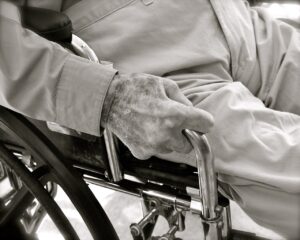Table of Contents
ToggleHair Care:
Hair care is an essential aspect of personal hygiene and well-being. Proper hair care promotes a healthy scalp, prevents hair damage, and contributes to an individual’s overall appearance. Here are key practices and considerations for effective hair care:
Purpose:
- To Ensure Patient Comfort:
- To provide comfort to the patient during the hair care procedure.
- To Remove Tangles:
- To eliminate tangles and knots from the hair, preventing discomfort.
- To Preserve Hair During Illness:
- To maintain the hair in good condition despite the patient’s illness.
- To Detect Lice:
- To discreetly observe the presence of lice without the patient’s awareness.
- To Prevent Infection:
- To minimize the risk of infection by maintaining cleanliness in the hair.
- In Preparation for Diagnostic Procedures:
- To prepare the patient’s hair for diagnostic procedures involving the head.
Equipment:
- Patient’s bath towel
- Hair comb
- Hairbrush
- Vaseline
- Clips
- Rubber bands or tapes

1. Regular Washing:
- Procedure: Wash hair regularly using a mild shampoo appropriate for the hair type (dry, oily, normal).
- Rationale: Cleansing removes dirt, excess oil, and product buildup, promoting a clean and healthy scalp.
2. Scalp Massage:
- Procedure: Gently massage the scalp while washing to stimulate blood circulation.
- Rationale: Enhances blood flow to the hair follicles, promoting hair growth and overall scalp health.
3. Conditioning:
- Procedure: Use a suitable conditioner after shampooing, focusing on the tips of the hair.
- Rationale: Conditions help to moisturize and detangle hair, preventing breakage and adding shine.
4. Proper Drying:
- Procedure: Pat hair dry with a towel; avoid vigorous rubbing. Use a wide-toothed comb for wet hair.
- Rationale: Minimizes damage and breakage that can occur when hair is wet and vulnerable.
5. Protection from Heat:
- Procedure: Limit the use of heated styling tools. If used, apply a heat protectant spray.
- Rationale: Reduces the risk of heat-related damage, such as split ends and dryness.
6. Regular Trimming:
- Procedure: Schedule regular haircuts to trim split ends and maintain a healthy hair length.
- Rationale: Prevents split ends and promotes overall hair health.
7. Choosing the Right Hair Products:
- Procedure: Select hair care products based on hair type and specific needs (e.g., moisturizing, volumizing).
- Rationale: Proper products address individual hair concerns and contribute to overall hair health.
8. Protecting Hair from Sun and Environmental Factors:
- Procedure: Wear hats or use protective products when exposed to the sun or harsh weather.
- Rationale: Shields hair from UV rays and environmental damage, preserving its health and color.
9. Healthy Diet:
- Procedure: Maintain a balanced diet rich in vitamins and minerals, including those essential for hair health (e.g., biotin, vitamin E).
- Rationale: Proper nutrition supports healthy hair growth and strength.
10. Addressing Specific Hair Concerns:
- Procedure: Use specialized treatments for concerns such as dandruff, dry scalp, or excessive oiliness.
- Rationale: Tailors care to address specific issues, promoting a healthier scalp and hair.
11. Adequate Hydration:
- Procedure: Stay hydrated by consuming sufficient water daily.
- Rationale: Hydration is crucial for maintaining moisture in hair and preventing dryness.
12. Gentle Detangling:
- Procedure: Use a wide-toothed comb to detangle hair, starting from the tips and working upward.
- Rationale: Minimizes breakage and damage during the detangling process.
Read more: Sitz Bath
Read more: BSc/RN/PHN/RM Practical Questions

